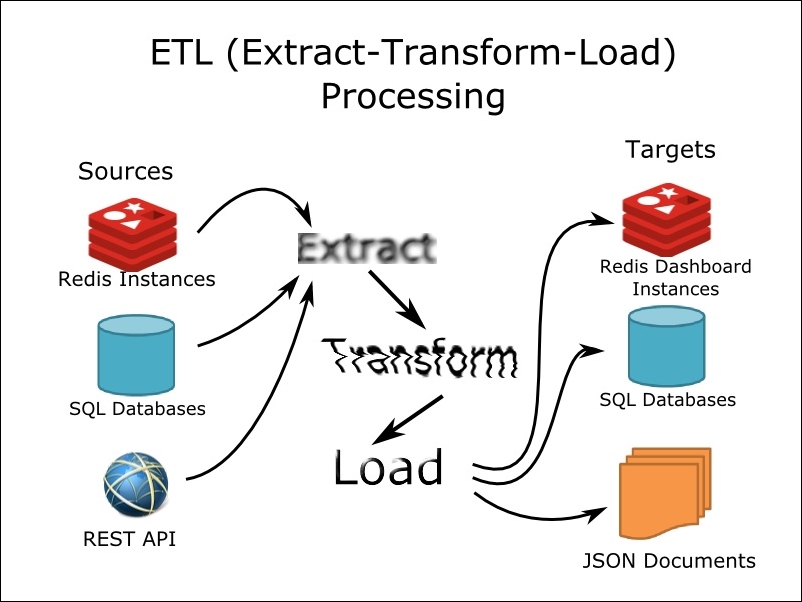Extracting, transforming, and loading information with Redis
Redis's flexibility and speed make it an ideal candidate for many extract, transform, and load (ETL) processes for both homogeneous data as well as complex and heterogeneous data sources that are becoming increasingly common in the modern organization.
Unlike expensive and proprietary ETL systems, Redis's open source model offers capabilities that even these commercial systems lack, while giving the small and medium-sized enterprise opportunities to improve the flow of their own, constantly growing, and increasingly complex data:

Extract-Transform-Load Processing
Importing data through most Redis clients, even using Redis clients that support transactions and command pipelining, is slow and inefficient due to the penalty of round-trip write and reply from the Redis server to the Redis client. Most clients do not support non-blocking I/O mode and often cannot parse the replies back from the Redis server in a manner that maximizes...































































